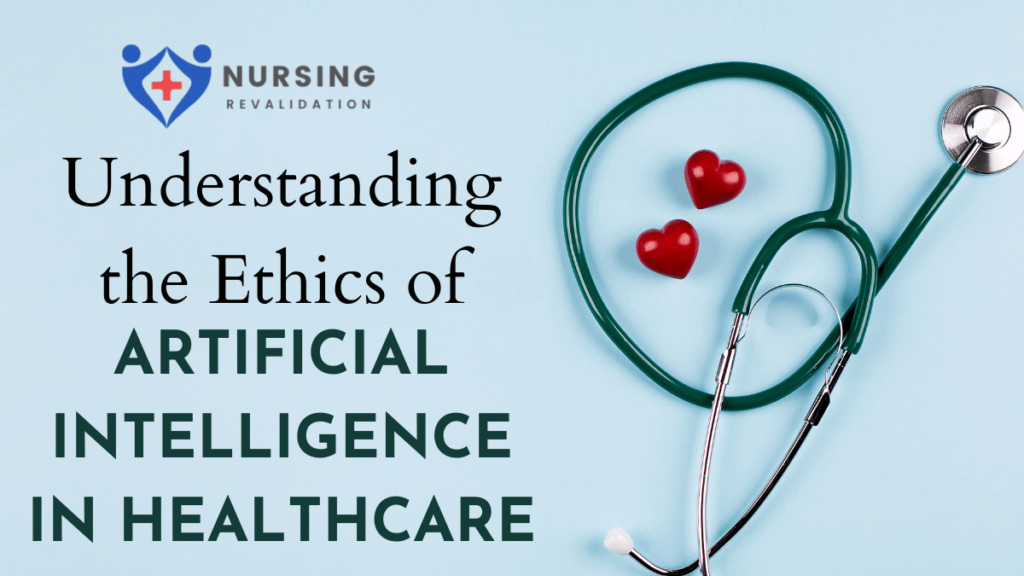In recent years, the integration of artificial intelligence (AI) in healthcare has revolutionized the industry, offering innovative solutions to longstanding challenges. However, as AI continues to advance, questions regarding its ethical implications have become increasingly prevalent. In this comprehensive guide, we delve into the intricacies of the ethics surrounding AI in healthcare, exploring its impact, challenges, and potential solutions.
Ethical Considerations in AI Healthcare
Ensuring Patient Privacy and Data Security
One of the foremost ethical concerns in AI healthcare revolves around patient privacy and data security. As AI systems rely heavily on vast amounts of sensitive patient data to function effectively, safeguarding this information is paramount. Healthcare organizations must implement robust security measures to protect patient confidentiality and prevent unauthorized access to personal health records.
Promoting Transparency and Accountability
Transparency is crucial in AI-driven healthcare systems to foster trust between patients, healthcare providers, and AI developers. Patients have the right to understand how AI algorithms influence medical decisions and treatment recommendations. Additionally, developers must be transparent about the limitations and biases inherent in AI models to mitigate potential harm.
Addressing Bias and Fairness
AI algorithms are susceptible to bias, reflecting the societal prejudices present in the data used for training. This bias can lead to disparities in healthcare delivery, disproportionately affecting marginalized communities. Ethical AI development entails identifying and mitigating bias in algorithms to ensure fairness and equity in healthcare outcomes.
Table: Ethical Principles in AI Healthcare
| Ethical Principle | Description |
|---|---|
| Patient Privacy | Protecting patient confidentiality and data security to safeguard privacy |
| Transparency | Ensuring transparency in AI algorithms and decision-making processes to build trust |
| Bias Mitigation | Identifying and mitigating biases in AI models to promote fairness and equity in healthcare outcomes |
| Accountability | Establishing clear lines of accountability and responsibility for AI-driven healthcare decisions |
| Regulatory Compliance | Adhering to regulatory frameworks and guidelines to ensure ethical AI development and deployment in healthcare |
| Education and Awareness | Promoting education and awareness about the ethical implications of AI in healthcare to empower stakeholders and promote informed decision-making |
The Impact of AI on Healthcare Ethics
Enhanced Diagnostic Accuracy and Efficiency
AI technologies have demonstrated remarkable capabilities in diagnostic imaging, pathology, and medical diagnostics. Machine learning algorithms can analyze vast datasets with unparalleled speed and accuracy, aiding clinicians in early disease detection and treatment planning. However, the reliance on AI for medical diagnosis raises concerns about over-reliance and potential misinterpretation of results.
Personalized Treatment and Precision Medicine
AI-powered predictive analytics enable personalized treatment plans tailored to individual patient needs. By analyzing genetic, environmental, and lifestyle data, AI algorithms can identify optimal treatment strategies and predict patient responses to specific interventions. While this promises more effective healthcare delivery, ethical considerations arise regarding patient autonomy, consent, and the responsible use of personal data.
Ethical Challenges in Autonomous Decision-Making
The emergence of autonomous AI systems capable of making critical healthcare decisions poses significant ethical dilemmas. From surgical robots to diagnostic algorithms, autonomous AI raises questions about accountability, liability, and the delegation of decision-making authority. Balancing the benefits of automation with the need for human oversight and intervention is essential to uphold patient safety and ethical standards.
Mitigating Ethical Risks in AI Healthcare
Regulatory Frameworks and Guidelines
Regulatory bodies play a crucial role in establishing guidelines and standards for ethical AI development and deployment in healthcare. Robust regulatory frameworks ensure compliance with legal and ethical principles, safeguarding patient rights and promoting responsible innovation. Collaboration between policymakers, healthcare professionals, and technology experts is essential to develop comprehensive regulatory frameworks that address emerging ethical challenges in AI healthcare.
Ethical AI Design Principles
Ethical AI design principles prioritize fairness, transparency, accountability, and privacy throughout the development lifecycle. By incorporating ethics into the design process, AI developers can mitigate biases, enhance interpretability, and promote user trust. Adhering to ethical design principles ensures that AI systems prioritize patient well-being and align with ethical standards in healthcare delivery.
Continued Education and Awareness
Educating healthcare professionals, policymakers, and the public about the ethical implications of AI in healthcare is crucial for informed decision-making and ethical practice. Training programs and educational resources should emphasize the ethical considerations associated with AI technologies, empowering stakeholders to navigate complex ethical dilemmas and uphold patient-centered care.
Conclusion
As artificial intelligence continues to reshape the landscape of healthcare, understanding the ethical implications is paramount. By addressing issues such as patient privacy, bias mitigation, and transparency, we can harness the transformative potential of AI while upholding ethical standards and safeguarding patient well-being. Embracing a multidisciplinary approach that integrates ethical considerations into AI development and implementation is essential to ensure that technology serves the best interests of patients and society as a whole.

